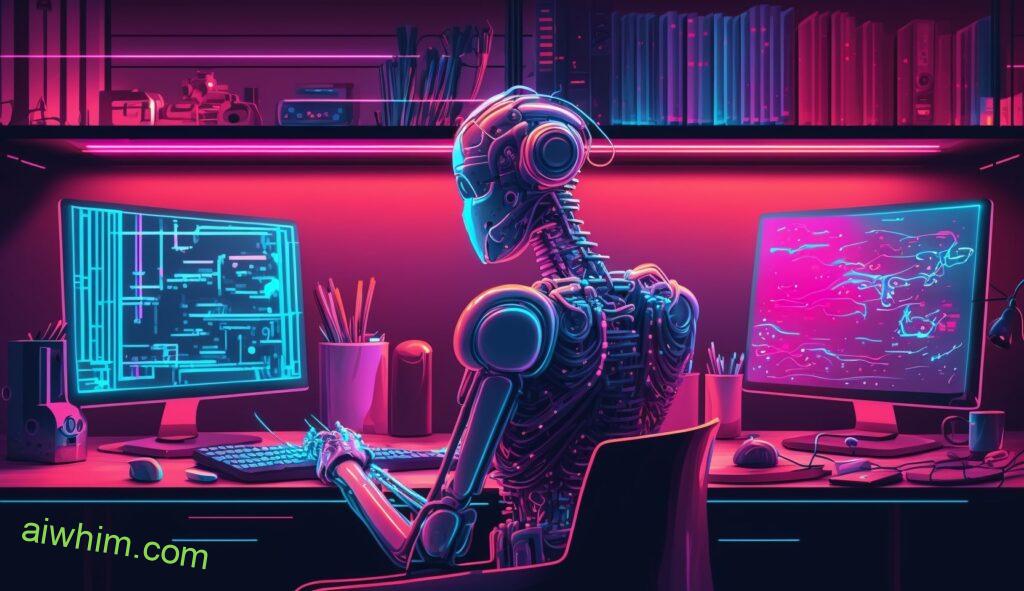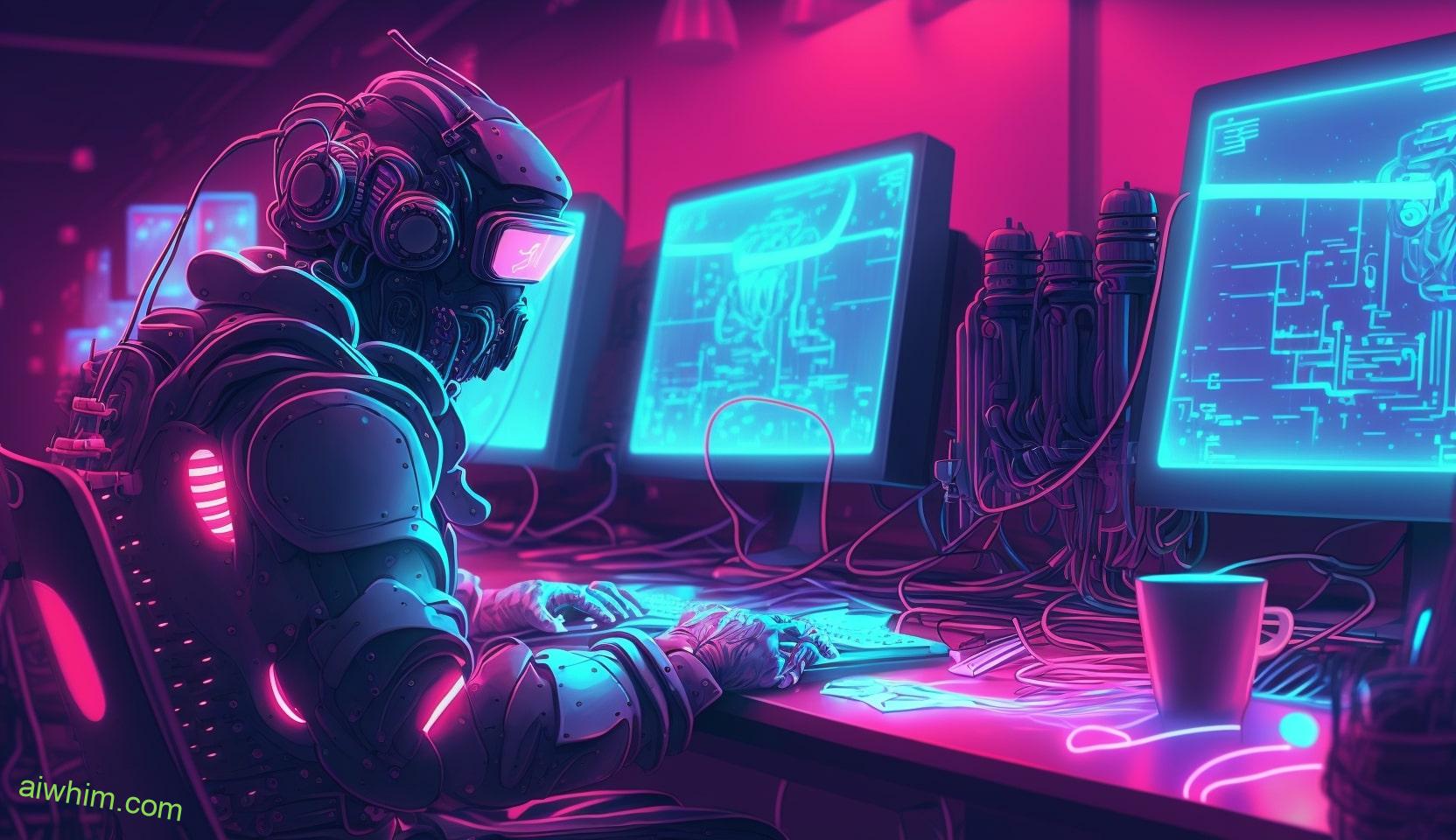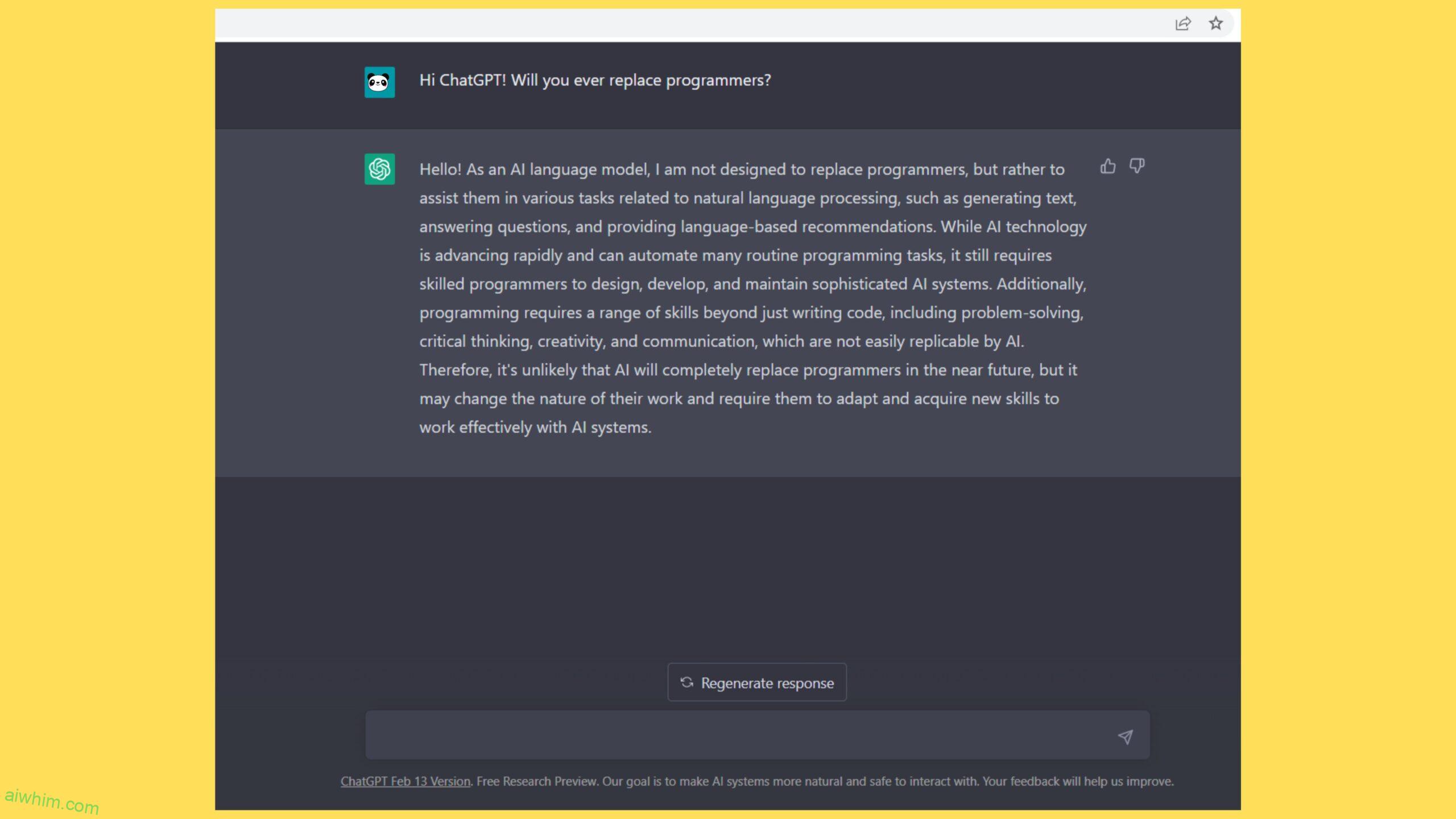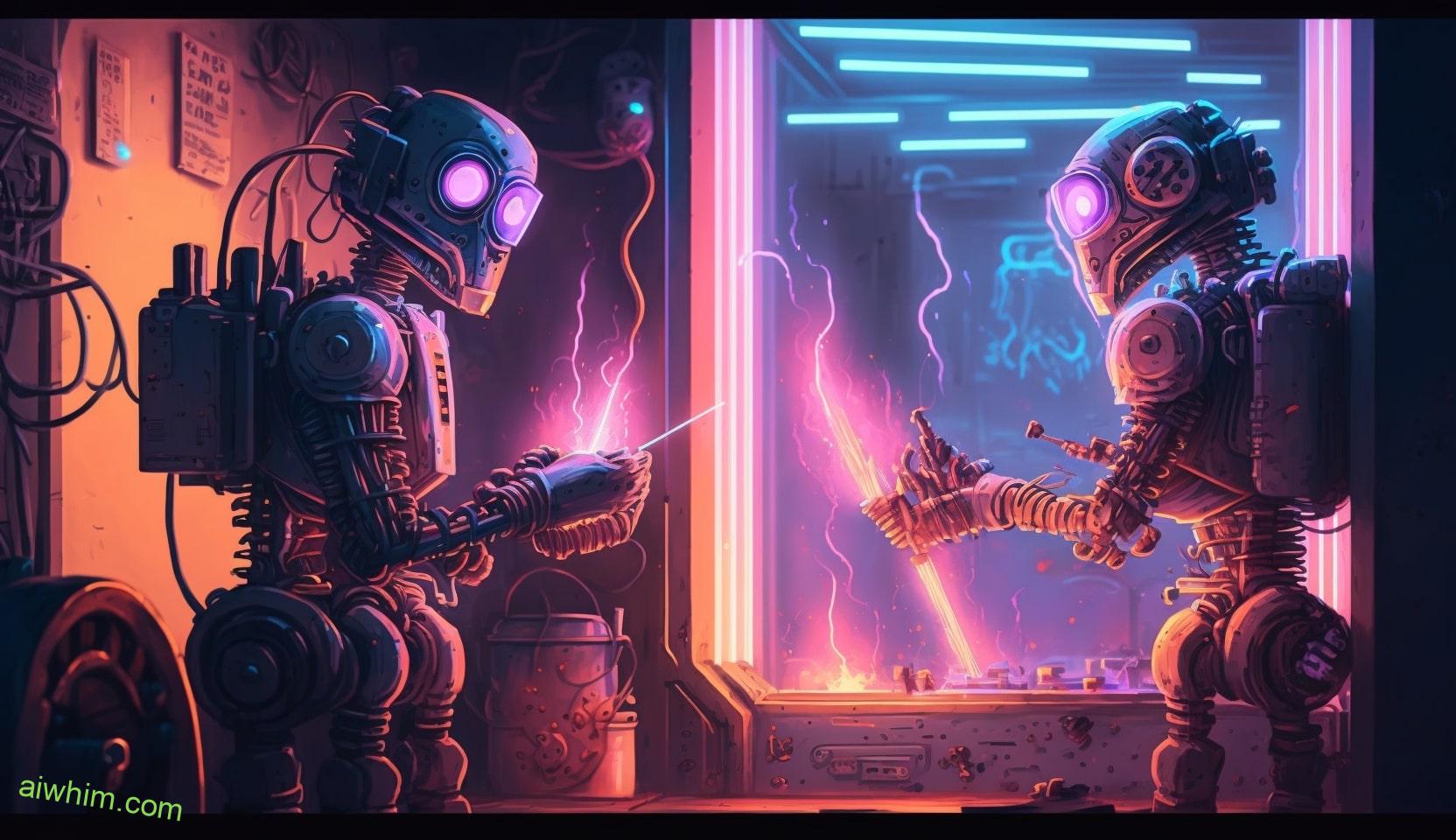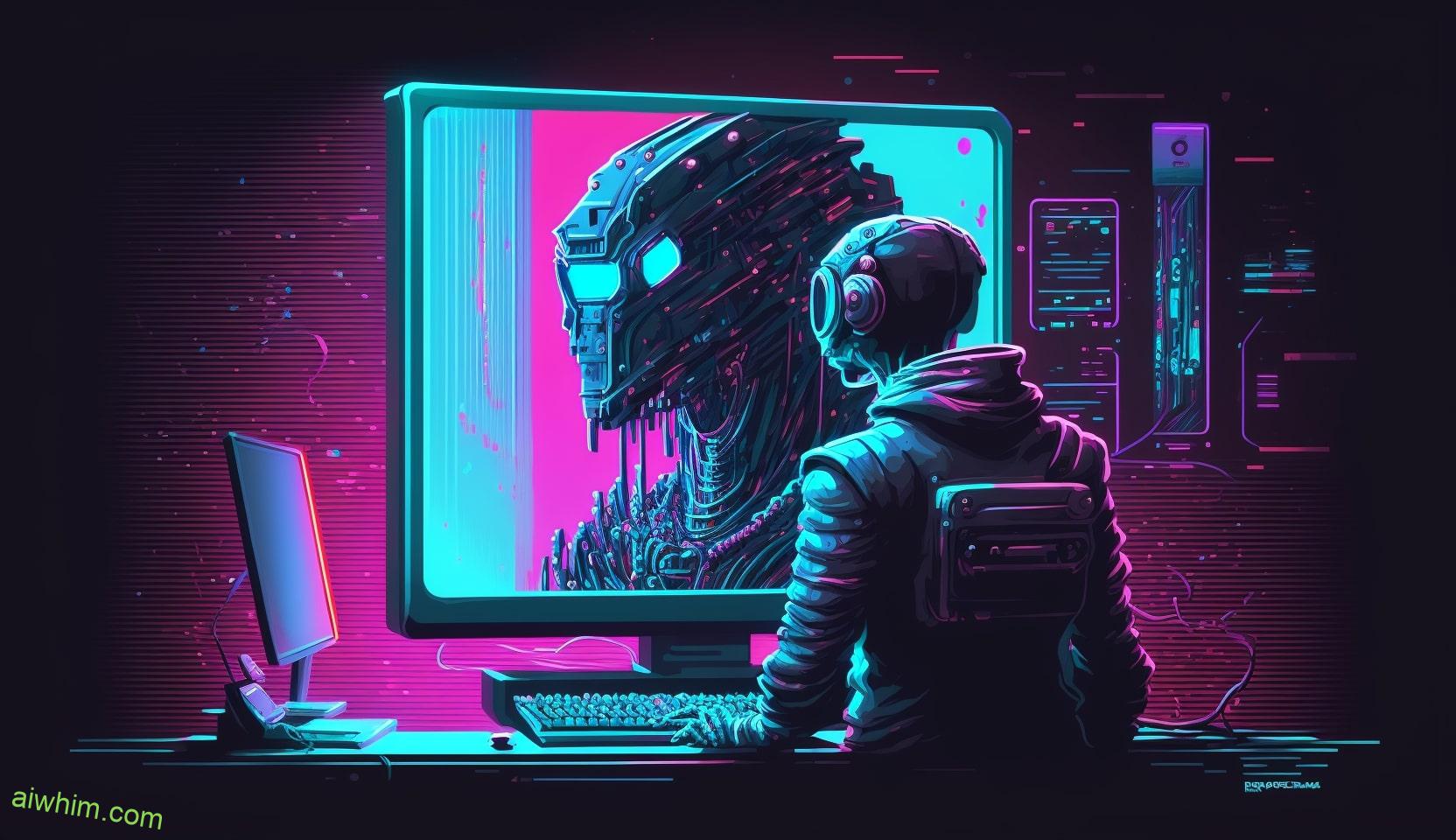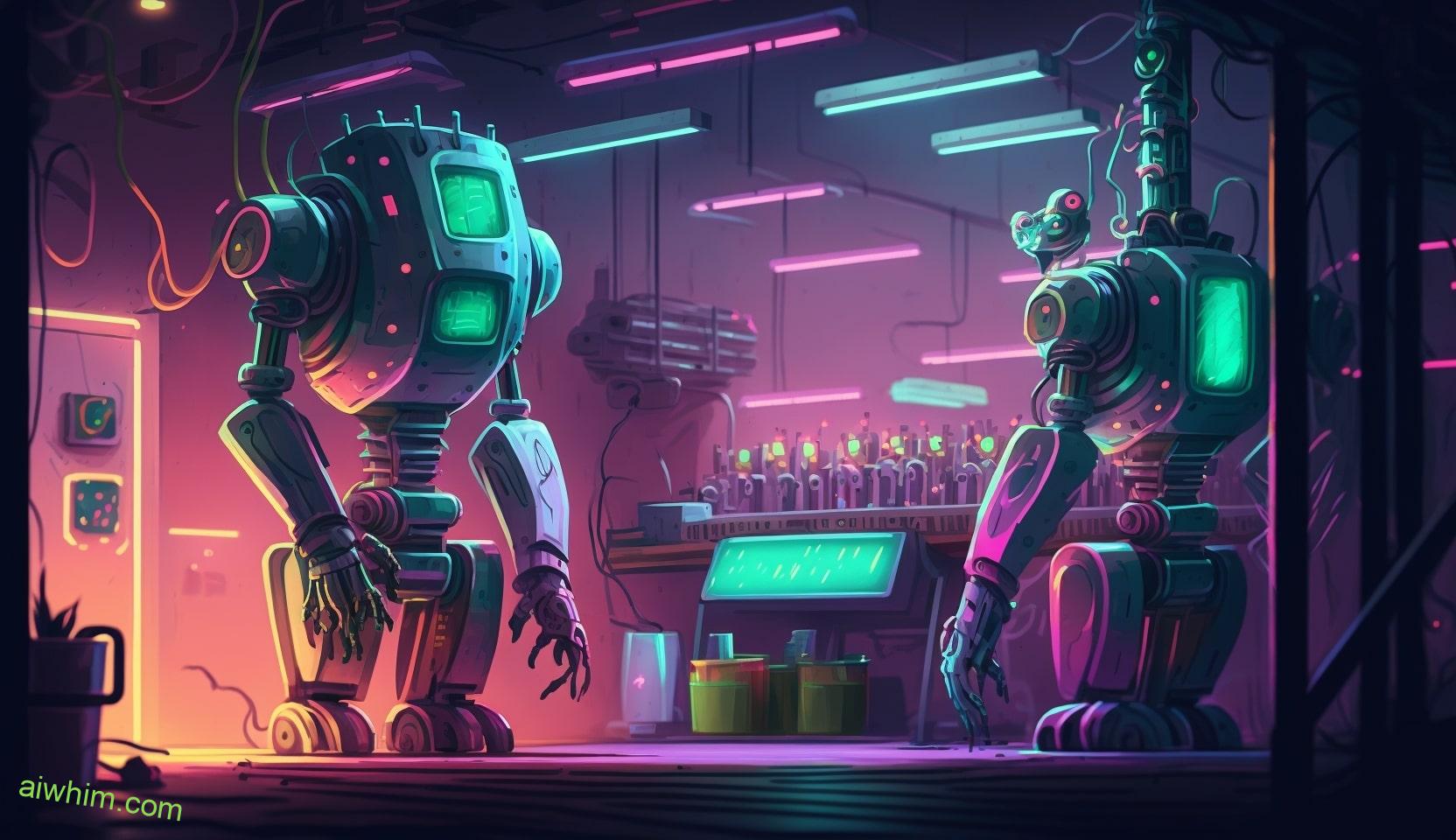Software developers are on the cutting edge of technology, creating revolutionary programs and applications that shape our lives. But with artificial intelligence (AI) rapidly advancing, will software developer jobs eventually be replaced by machines? This is an important question for those considering a career in software development, as well as for businesses looking to invest in these technologies. In this article we’ll explore whether AI could replace existing software developer roles – and if so, what impact it would have on individuals and organizations.
For many people, the idea of robots taking over their job seems like something out of science fiction. After all, only humans can understand complex problems and generate creative solutions – or can they? Recent developments in AI suggest that machines may one day be able to think more quickly than human beings and even outperform them when it comes to problem-solving tasks. If true, this could spell disaster for some types of software developer positions.
At the same time, however, there’s also reason to believe that AI won’t entirely supplant traditional software engineering roles anytime soon. While automated systems can certainly help speed up certain processes, they still lack the ability to truly understand and respond to changing conditions – something that makes them less suitable for certain projects where creativity plays a major role. So while automation might affect how software engineer jobs are performed in future years, it’s unlikely that it will completely eliminate them altogether.
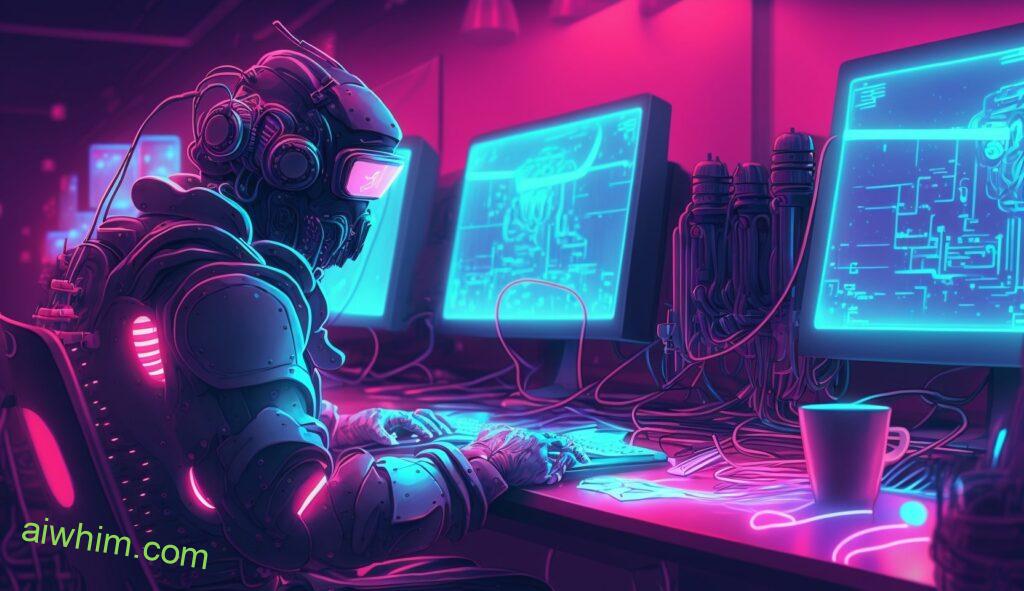
Definition Of Artificial Intelligence
Artificial Intelligence (AI) is the science of creating machines that can think and act like humans. It has been a rapidly growing field since its inception in 1950s. AI systems are able to learn from past experiences, analyze data more quickly than people, and perform tasks more efficiently without human intervention. Machine learning and deep learning are two techniques used for developing AI applications.
Machine learning involves using algorithms to identify patterns in large datasets over time; this enables computers to make decisions based on what they have learned from those patterns. Deep learning takes machine learning one step further by adding layers of complexity to the models; it allows computers to “think” more deeply about their decisions and better understand complex problems or situations. With these advancements, AI is becoming increasingly important as technology continues to evolve rapidly.
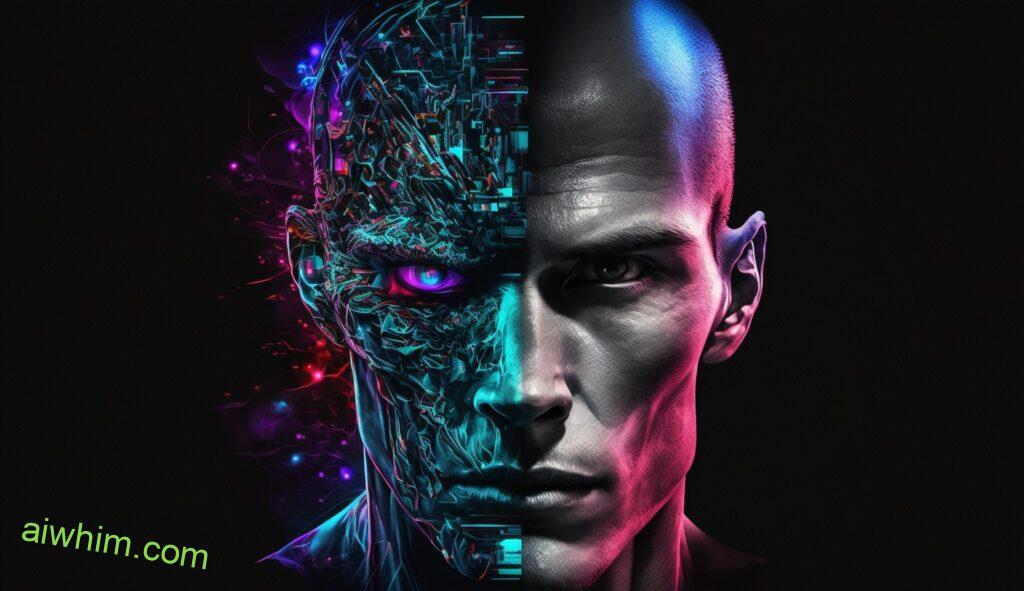
By the way, if you are a web developer interested in how AI will impact your job, click the link to read our article on that instead!
Historical Development Of AI
The history of artificial intelligence began in the 1950s when Alan Turing proposed a test to determine if a machine could think and behave like humans. This sparked an interest in developing machines that could mimic human behavior through programming, which came to be known as AI. In the decades since then, AI has continued to evolve with advancements such as machine learning and natural language processing (NLP).
Machine learning is based on algorithms that are designed to learn from data without being explicitly programmed. It enables computers to identify patterns in vast amounts of data more quickly than humans can by using statistical models and complex mathematical equations. Natural language processing (NLP) allows machines to understand spoken or written text, allowing them to communicate with people in their own language instead of code. With these advances, AI systems have been able to solve problems faster and more efficiently than ever before.
AI technology has come a long way over the years, but it is still far from replacing humans when it comes to software development jobs. While certain aspects of coding may become automated over time, there will always be a need for skilled developers who can write efficient code and create solutions for specific problems.
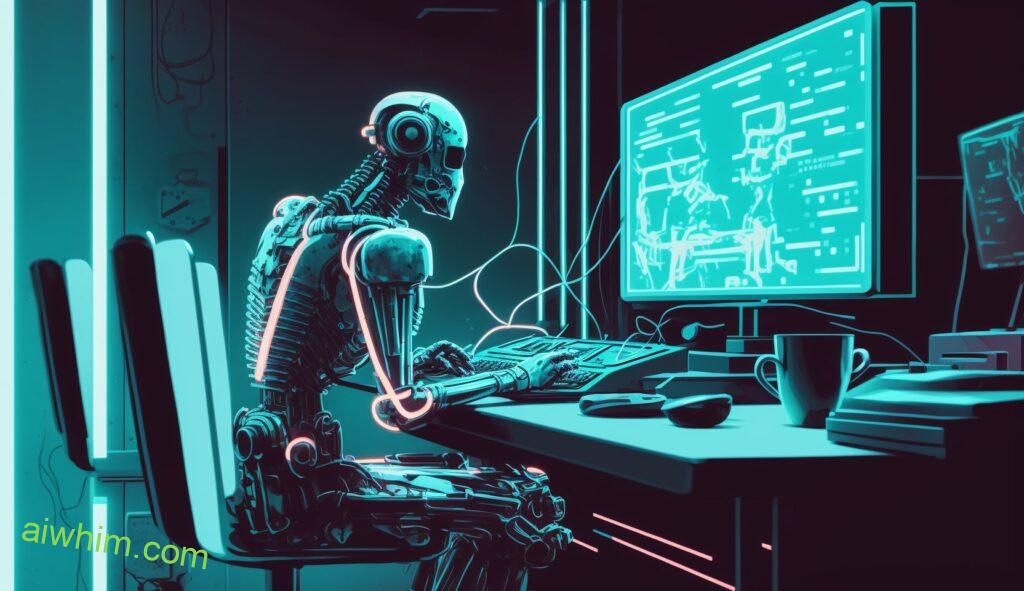
Pros And Cons Of Replacing Developers With AI
The idea of replacing software developers with AI has been gaining traction in recent years. On one hand, it promises to automate mundane tasks and create new efficiencies; on the other, it raises legitimate concerns about job losses. Let’s take a closer look at the pros and cons of this trend:
Pros of Replacing Software Developers with AI
- Increased efficiency & productivity: Automating repetitive coding tasks through AI can help speed up development cycles and free up developer time for more complex activities.
- Cost savings: By automating certain processes, companies can save money that would have otherwise been spent on labor costs associated with manual coding.
- Reduced human errors: AI automation is expected to reduce or eliminate errors caused by human oversight when writing code.
Cons of Replacing Software Developers with AI
- Job losses: One of the primary drawbacks is potential job losses as many developers could be replaced by automated systems.
- Difficulty adapting technology: It may be difficult for some organizations to adapt their current tech infrastructure to support AI automation.
- Security risks: Companies must ensure that any external applications are secure before using them, which might prove challenging given the rapid pace of innovation in this space.
Overall, while there are definite benefits associated with introducing AI into software development, there are also potential downsides such as job losses and security risks that should not be overlooked or ignored. Careful consideration should always be taken before implementing any automation system in order to weigh both sides of the equation carefully.
Potential Impact On The Job Market
The potential for software developers to be replaced by AI is certainly a looming concern in today’s job market. With workforce automation coming into play, there is an increasing threat of job displacement across many industries. This could have drastic implications not only on the tech sector but also other areas that rely heavily on technology.
It’s no secret that machine learning and artificial intelligence allow companies to automate more tasks than ever before, which can drastically reduce costs and create efficiency gains that may not be achievable with pure human labor alone. While this can lead to increased productivity, it also carries considerable risk when it comes to jobs being displaced or lost altogether as businesses shift towards automated solutions over manual ones. It has been estimated that AI-driven automation could result in millions of people being laid off from their current positions within the next decade, so governments must act quickly and responsibly to ensure that workers who are affected by this transformation receive proper compensation and retraining opportunities.
No one knows exactly what the future holds for various professions and how they will continue to evolve alongside advances in technology, however it is important that both governments and private organizations take steps now in order to mitigate any negative impacts of job displacement caused by automation. A concerted effort should be made toward creating flexible policies related to worker protections while continuing investment in training programs that help keep up with industry trends for those facing uncertain futures due to technological advancements.
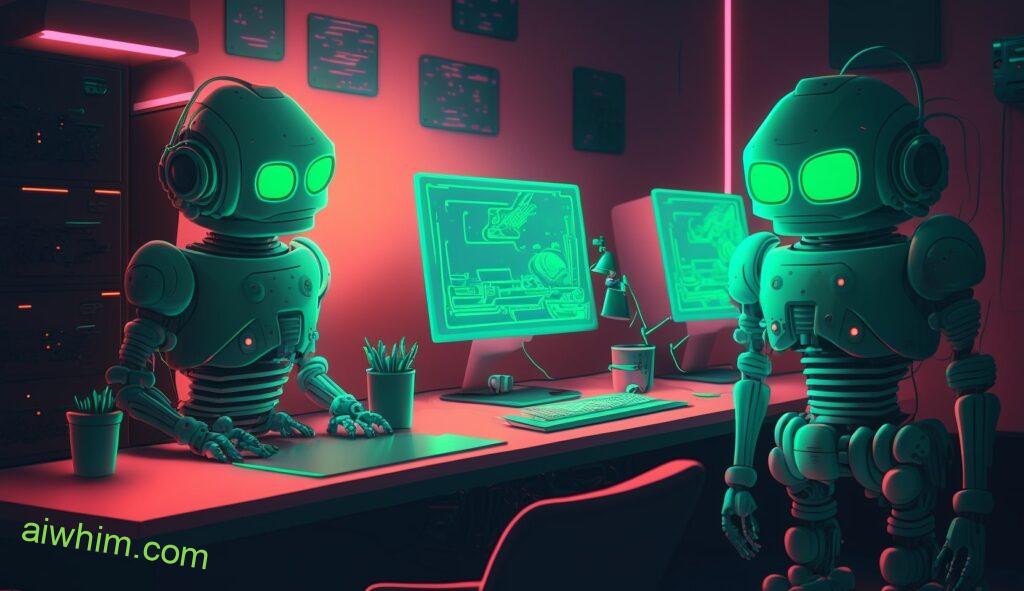
Challenges With Automation In Software Development
The potential impact of automation on the job market brings up a number of challenges associated with software development, specifically in regards to AI automation. Automation comes with its own set of unique obstacles; from programming bugs that only come out once the program is deployed and used by real customers, to dealing with unanticipated customer interactions. Additionally, there are ethical considerations for businesses when implementing automated systems as well as ensuring that data collected through these systems does not get misused or abused.
On top of this, many companies are still trying to figure out how best to incorporate AI into their existing software infrastructure. This means making sure all aspects of the system can effectively communicate with each other and understanding how much control should be given over to an AI-powered system. Furthermore, developers must continually monitor and analyze performance metrics such as accuracy and response time while also designing algorithms that can adjust themselves without needing manual intervention. These tasks require knowledge beyond simply coding which makes it difficult for machines alone to replace human developers entirely.
Software automation has immense potential but only if done correctly within existing frameworks and guidelines. Companies need experienced professionals who understand the complexities involved in both developing new programs as well as retrofitting them using AI technology so they can work reliably and securely in any environment.
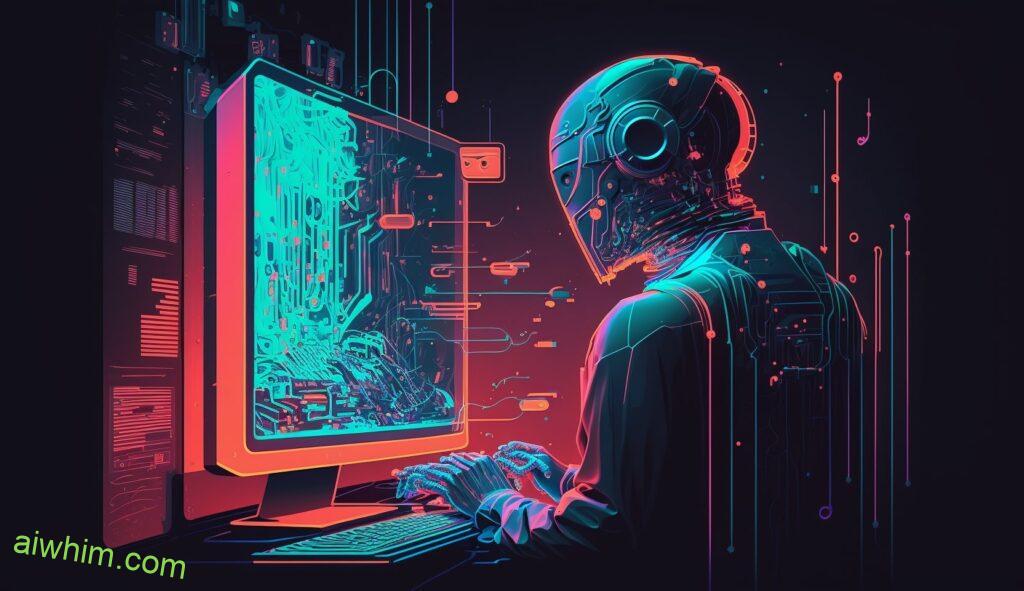
Human-Computer Interaction And Role In Software Development
Can you hear it? The sound of human jobs being taken away by artificial intelligence! AI systems are becoming so advanced that they can now take over the role of software developers, right? Wrong. Although AI technology is rapidly advancing and impacting many aspects of software development, human-computer interaction still plays a crucial part in the process.
Humans bring something to the table that machines simply cannot—creative problem solving techniques and intuitive understanding of user needs. We have an advantage over robots because we understand people; we know what kind of features customers want and how to craft those features into functional products. Without us, there would be no one to think outside the box or explore new possibilities with design. The ability to empathize with users makes human software developers invaluable when creating digital experiences that meet customer expectations.
Software development requires collaboration between humans and computers for maximum effectiveness. Developers must use their knowledge and experience together with machine learning algorithms and automation tools in order to create innovative solutions and successful applications. By combining both approaches, teams can leverage the strengths of each party to produce exceptional results at high speed. Ultimately, this combination will allow developers to continue producing quality software while minimizing manual tasks and maximizing efficiency.
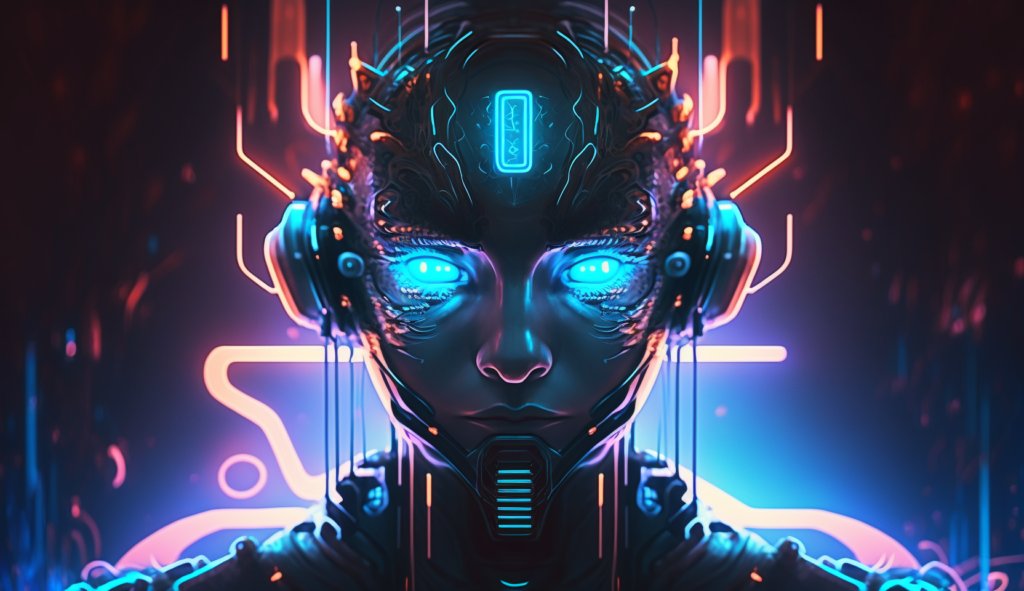
What Could Be Automated?
Now that we have discussed the role of human-computer interaction in software development, let’s explore what tasks could be automated. Automation has had a tremendous impact on many industries and is increasingly being used to streamline processes within software engineering.
There are numerous automation tasks that can help reduce costs and improve efficiency. These include:
- Automated Testing: This involves creating tests for software applications before they reach production. It helps developers identify any potential bugs or errors quickly so they can be corrected before going live.
- Database Replication: This process creates an exact copy of a database which keeps data synchronized across multiple locations or systems. This makes it easier for teams to collaborate on projects without having to manually sync changes between different databases.
- Software Deployment Automation: This enables software engineers to deploy code from their local development environment into production with minimal effort. It also allows them to track deployments and roll back if needed, making sure every version of the application is up-to-date and secure.
Automating these processes reduces manual labor and ensures consistency throughout the entire development lifecycle, leading to fewer mistakes and improved quality assurance measures for organizations. In addition, automating certain tasks such as deployment eliminates the need for redundant work by reducing the amount of time spent performing mundane activities such as checking logs or running scripts manually. Furthermore, this type of automation eliminates much of the risk associated with deploying new software updates due to its ability to quickly roll back any changes made if something goes wrong during the process. Ultimately, software automation provides businesses with more agility when adapting rapidly changing market conditions while still maintaining high levels of security and reliability in their products.
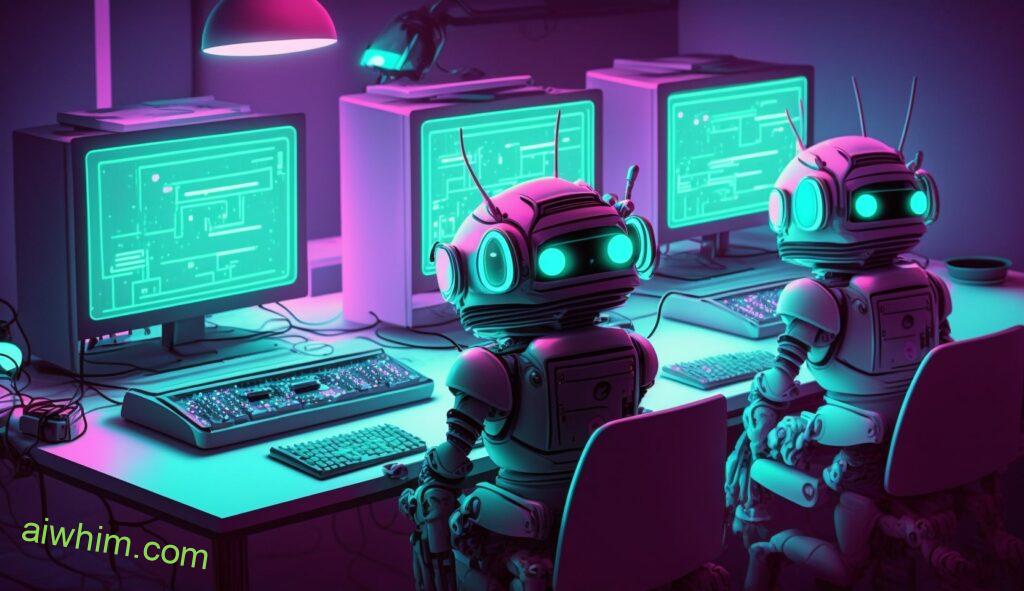
Limitations Of AI In Software Development
AI is still in its infancy, and there are a number of limitations that prevent it from fully replacing software development jobs. Automating certain aspects of software development can be helpful but, as with any technology, AI has its own set of challenges.
First of all, AI requires large amounts of data to train algorithms which can then automate tasks. This means that the quality of an AI’s output depends heavily on the amount and quality of data available for training. Additionally, many complex programming problems require creative solutions which machines may not always be capable of coming up with. Furthermore, though AI-based automation tools may save time on mundane tasks like code refactoring or bug fixing, they don’t necessarily make developers more productive since these tools often require significant setup and maintenance efforts before they become useful.
Software development also involves collaboration between team members across different disciplines such as product management, design, engineering and operations – something that current AI technologies simply cannot do. In most cases, human expertise will remain necessary in order to provide guidance and direction when dealing with complicated software projects or debugging existing applications. Therefore while AI-based systems offer great potential for streamlining some processes within the software development cycle, humans will continue to play a critical role in ensuring successful project outcomes.
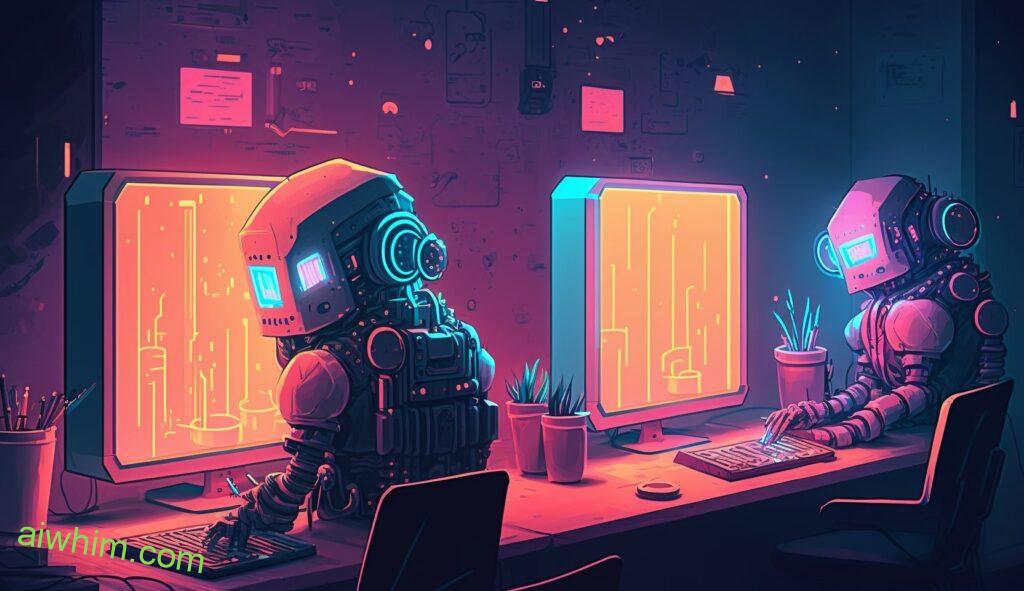
Security Concerns
There are some real concerns when it comes to software security and the use of AI. While AI can be beneficial in many ways for a variety of tasks related to software development, there is still potential for risks that must be taken into consideration. These include:
- Security risks due to malicious or faulty data input
- Potential vulnerabilities created by using AI algorithms
- Risks associated with autonomous decision making by AI systems
- Issues related to biased training datasets used in AI models
The implications of these security issues need to be explored before utilizing an AI system in any type of software development project. It’s important to have checks and balances in place so that if something does go wrong, it won’t cause serious damage or harm. Furthermore, all users should be aware of their own responsibility for ensuring the safety and security of their system. This includes understanding what kind of data is being collected as well as how it’s stored and processed. Taking proactive measures such as encrypting sensitive information or having regular audits will help ensure that any potential risk from using an AI system is minimized.
Software developers must bear in mind the various security challenges posed by the introduction of artificial intelligence into the domain of software engineering and take steps necessary to protect against them. By doing this, they’ll not only safeguard themselves but also create trust among those who use their applications and services – essential in today’s digital world where cyber threats loom large.
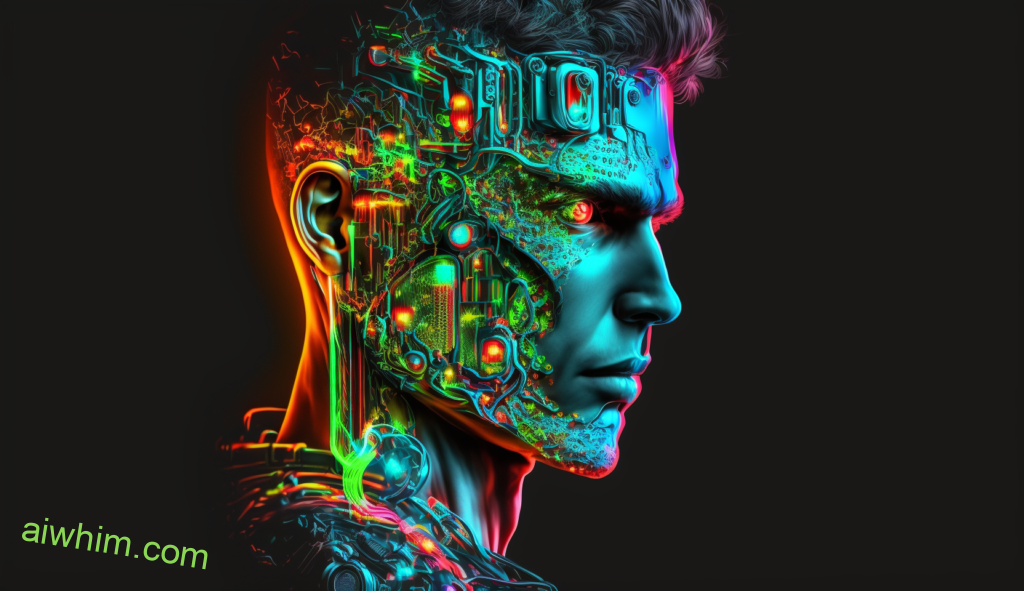
Regulatory Issues
The issue of whether or not software developer jobs will be replaced by AI has legal and regulatory implications. Regulatory requirements need to be taken into account when considering how these jobs might change in the future. This means understanding what compliance obligations are needed for organizations that develop or use AI technologies, as well as any applicable regulations regarding the safety and security of data.
Compliance with relevant laws is an important part of ensuring that companies comply with regulatory standards when implementing new technology like AI. Companies must understand their legal duties so they can ensure their operations meet all necessary requirements. They also need to consider potential liability issues and take steps to protect themselves from potential risks associated with using this type of cutting-edge technology. In addition, companies should have processes in place to handle the changing conditions surrounding regulation and legislation related to artificial intelligence technologies on a regular basis, since these rules and regulations may evolve over time.
It’s clear that there are numerous considerations when it comes to assessing the effect of AI on software developer jobs. Understanding the complexities involved ensures companies remain aware of their responsibilities and able to adjust accordingly if needed for successful implementation—all while preserving freedom for those involved in this industry.
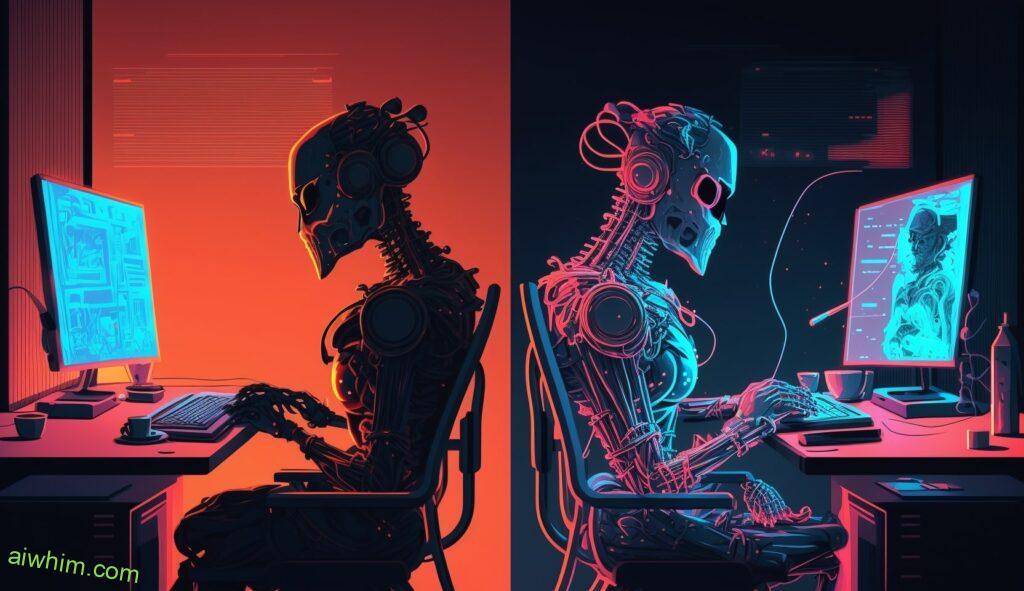
Ethical Considerations
Having discussed the regulatory issues surrounding AI, it is important to consider the ethical implications of replacing software developers with machines. While there are numerous economic benefits associated with automation, we must not forget the moral obligation to ensure responsible AI development and use. Furthermore, setting appropriate guidelines for using technology should be a priority in order to prevent unethical applications of this powerful tool.
The potential problems posed by an automated workforce become even more evident when considering its effects on human welfare. Machines may prove more efficient than humans at many tasks, but they lack the capacity for empathy or understanding complex social dynamics that often come into play in software engineering work. Without proper checks and balances, companies could easily prioritize their bottom lines over protecting their employees’ well-being and safety.
In light of these concerns, governments and organizations around the world have begun introducing principles aimed at mitigating any adverse outcomes from AI implementation. These initiatives provide frameworks for assessing both short-term risks and long-term impacts related to artificial intelligence technologies so that everyone can benefit from them responsibly. It is essential that companies adhere to such regulations if they wish to reap the full rewards of leveraging AI while avoiding any unintended consequences.
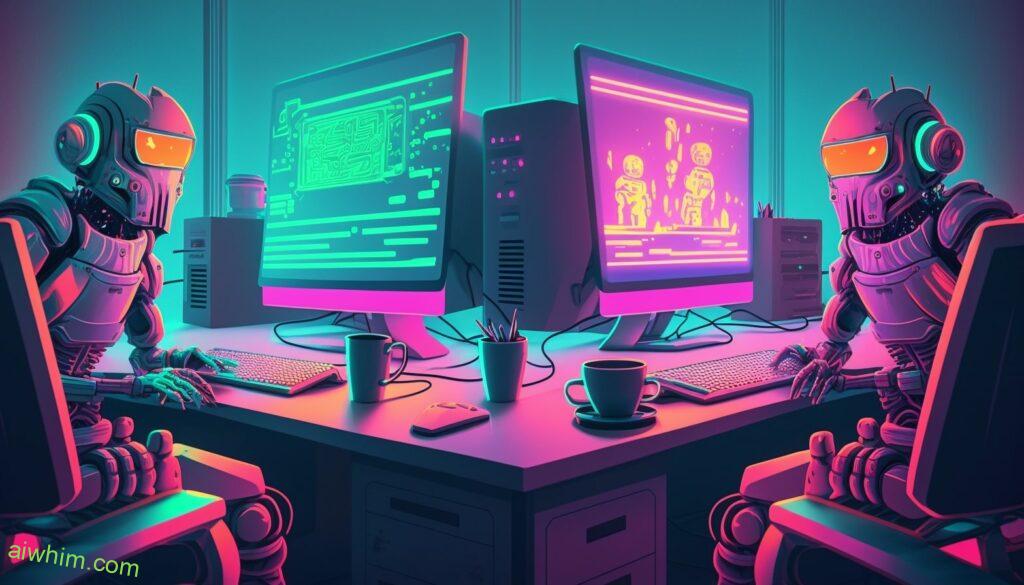
Training Requirements For AI Systems
AI systems are becoming increasingly sophisticated, necessitating rigorous training in order to achieve optimal performance. This training involves teaching the system how to think and behave like a human user, so it can correctly interact with its environment. AI systems also require software training – programming them to understand commands and recognize patterns – as well as system training, which entails learning about hardware components, networking protocols, and other technical considerations.
In many cases, these requirements may be far more complex than those of traditional software development jobs. For example, an AI engineer must understand all aspects of the system from both a theoretical and practical standpoint. They must possess not only knowledge of computer science but also have experience in machine learning algorithms that enable computers to learn on their own without explicit instructions or guidance. Additionally, they need to be able to troubleshoot any issues that arise during operation of the AI system.
Therefore, while software developers will still play an important role in developing AI-based applications and services for companies around the world, they should expect additional responsibilities associated with creating modern systems driven by artificial intelligence. Understanding the complexities involved with such advanced technology is essential for producing effective results that meet customer demands efficiently and effectively.
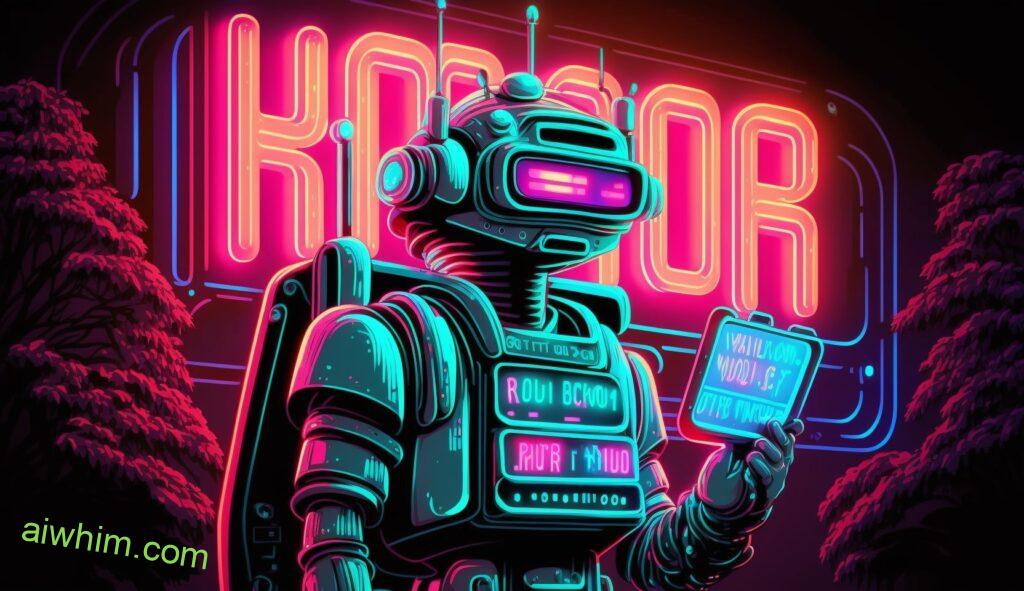
Solutions To Address The Job Losses From Automation
With AI technology rapidly advancing, the question of whether software developer jobs will be replaced by these intelligent systems is a valid one. The truth is that automation solutions do pose a threat to certain industries and job markets; however, there are strategies which can help protect employment opportunities for workers.
The first strategy involves investing in training programs which retrain individuals whose jobs may become obsolete due to automation. This type of program provides employees with the skills they need to fill new roles within their organization or transition into an entirely different field should their previous positions not exist anymore. Furthermore, providing tax incentives such as increased deductions or credits could also encourage companies to invest in employee training initiatives so those affected have greater access to future job prospects.
A second approach would involve creating new jobs through public-private partnerships centered around developing technological infrastructure and expanding digital literacy education among citizens. These types of projects could potentially create thousands of job openings while helping bridge the digital divide between countries and regions globally. Additionally, governments could incentivize businesses to hire more people in order to reduce unemployment levels instead of relying solely on automated technologies.
Thirdly, it’s important for organizations and employers alike to pay close attention to labor laws surrounding automation and its impact on human capital resources worldwide. For instance, implementing regulations such as minimum wage requirements or limiting the amount of time a person works each day can ensure that employees receive fair compensation regardless if robots take over some aspects of their work duties. Lastly, stronger enforcement mechanisms can discourage companies from replacing humans with machines without considering the potential consequences this might have on workers’ rights or livelihoods.
These four key points demonstrate how we can use job replacement strategies and automation solutions intelligently: (1) Investing in employee training programs; (2) Creating new jobs through public-private partnerships; (3) Paying close attention to labor laws; and (4) Enforcing regulatory measures when necessary. With careful consideration given towards protecting employment opportunities for all citizens across the world, we can make sure that everyone has access to viable career paths despite advancements in automated systems today
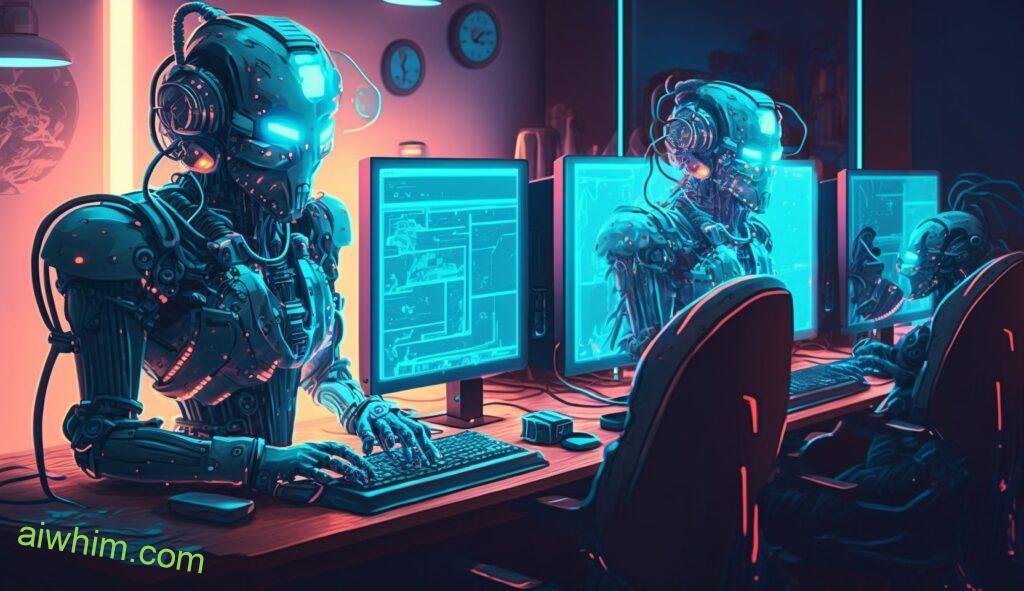
Future Outlook For Jobs In AI And Software Development
The future of software development and AI is an ever-evolving field. As technology advances, automation replaces many manual tasks that once required human labor. While this may seem daunting to some individuals, the truth is that there are still plenty of job opportunities in software development with AI at its core.
As AI and machine learning become more sophisticated, they can automate certain low-level programming processes. This enables developers to focus their efforts on more complex tasks such as debugging code or creating innovative features for applications and websites. Additionally, software automation allows companies to reduce costs associated with maintenance and testing while also increasing productivity.
Software development jobs involving AI will not be replaced by it anytime soon; instead, these roles will continue to evolve alongside the technology itself. Companies now have access to a wide range of tools designed specifically for automating specific tasks within the software engineering process. By leveraging these tools, businesses can make faster progress towards their goals while simultaneously reducing overhead costs related to hiring new staff members or outsourcing projects. With so much potential ahead in terms of both innovation and cost savings, the future looks bright for those working in software development and AI fields alike!
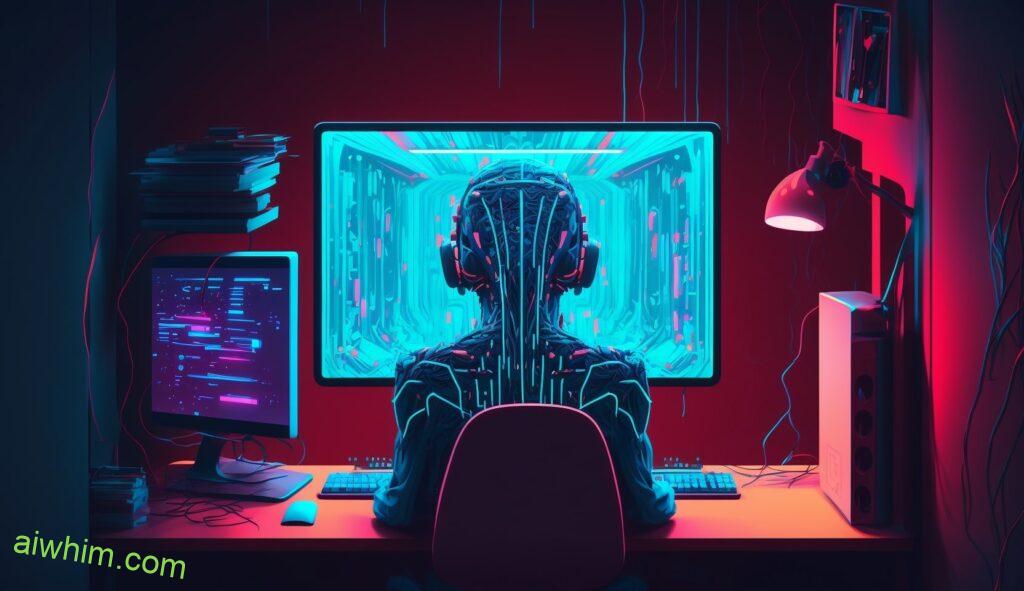
Key Takeaways
Given the increasing prevalence of artificial intelligence and automation, it is unlikely that software developer jobs will be completely replaced by AI. However, AI and automation are likely to have an impact on the job market for software development in some way.
There are several ways that AI and automation could affect the job market for software developers:
- Automation may reduce certain manual tasks associated with developing applications. This would mean less need for human labor, as machines can do these repetitive tasks more quickly and accurately than humans.
- Automated tools may become available that allow non-technical people to develop their own apps without any coding knowledge. This could lead to fewer software development jobs available in the future.
- AI could potentially take over certain aspects of coding or debugging processes, reducing the need for human coders in those areas.
- There could also be increased demand for skilled professionals who understand how to use automated tools and manage complex projects involving multiple technologies and platforms.
Overall, while we cannot predict exactly what changes might come about due to AI automation’s impact on the job market for software development, it is clear that there will be both challenges and opportunities in this space going forward. Software developers should stay informed about new technologies and trends related to AI and automation so they can remain competitive in this rapidly evolving field.
Author: Ole Paulson
Author Bio: I’m Ole and on this website, I share everything there is to know about Artificial Intelligence, and useful tips for using AI to our advantage. I have a background in data science and research and have been following the AI-space for years. You can read more about me in the “About” page.

